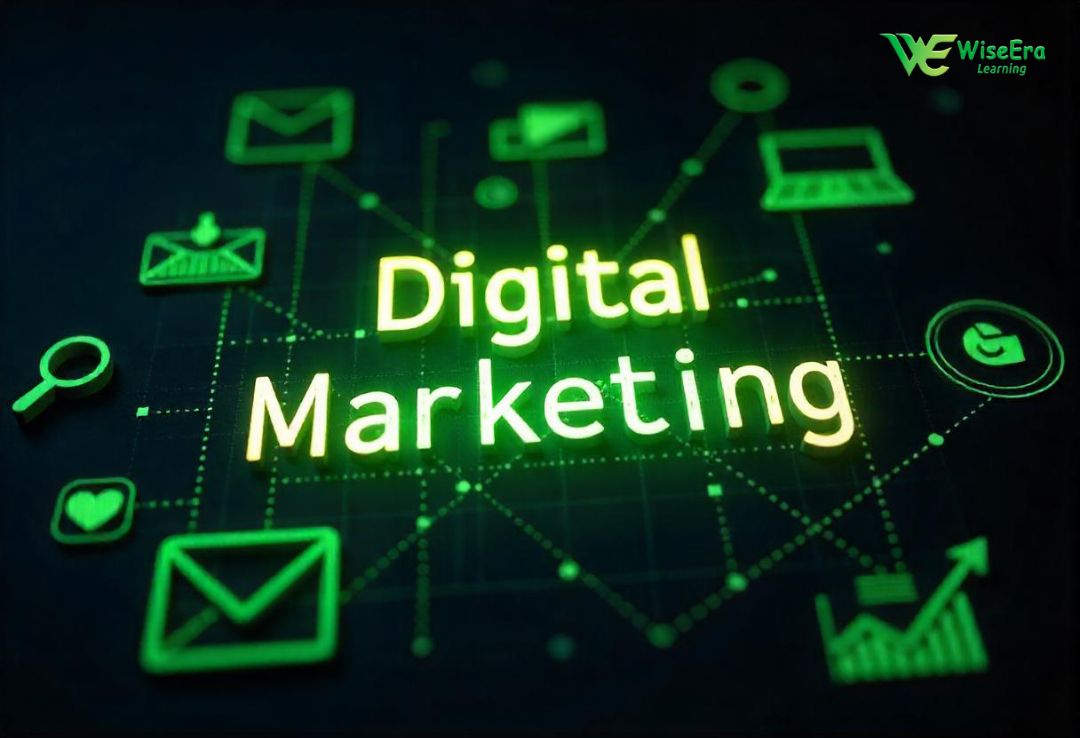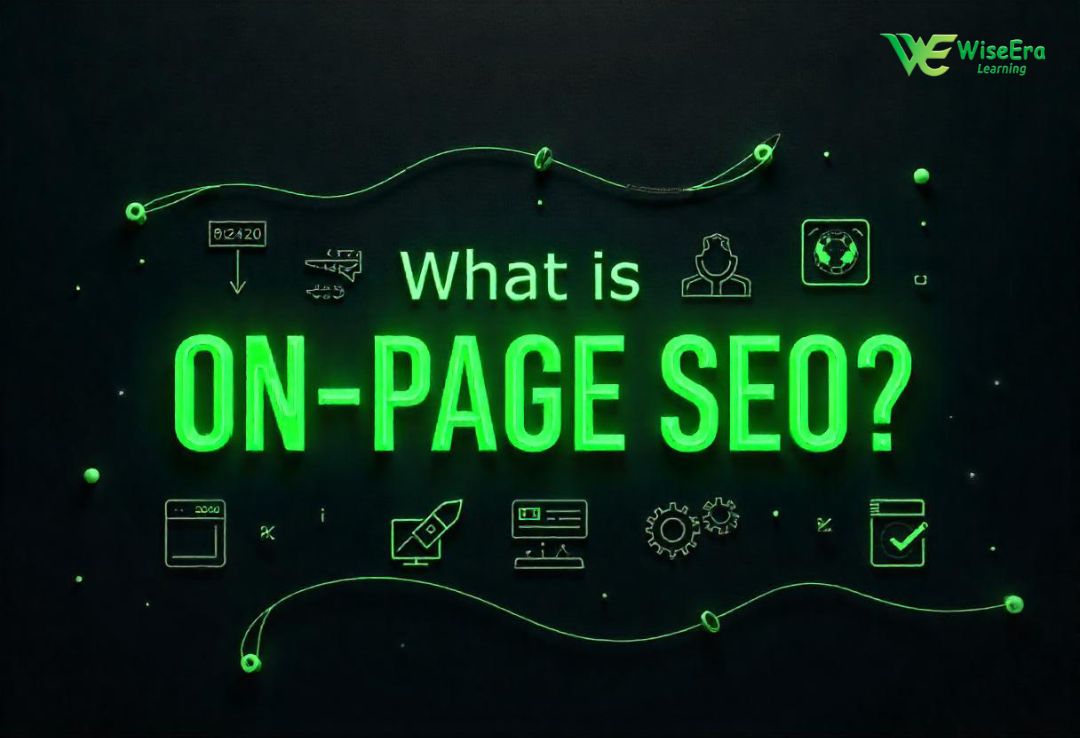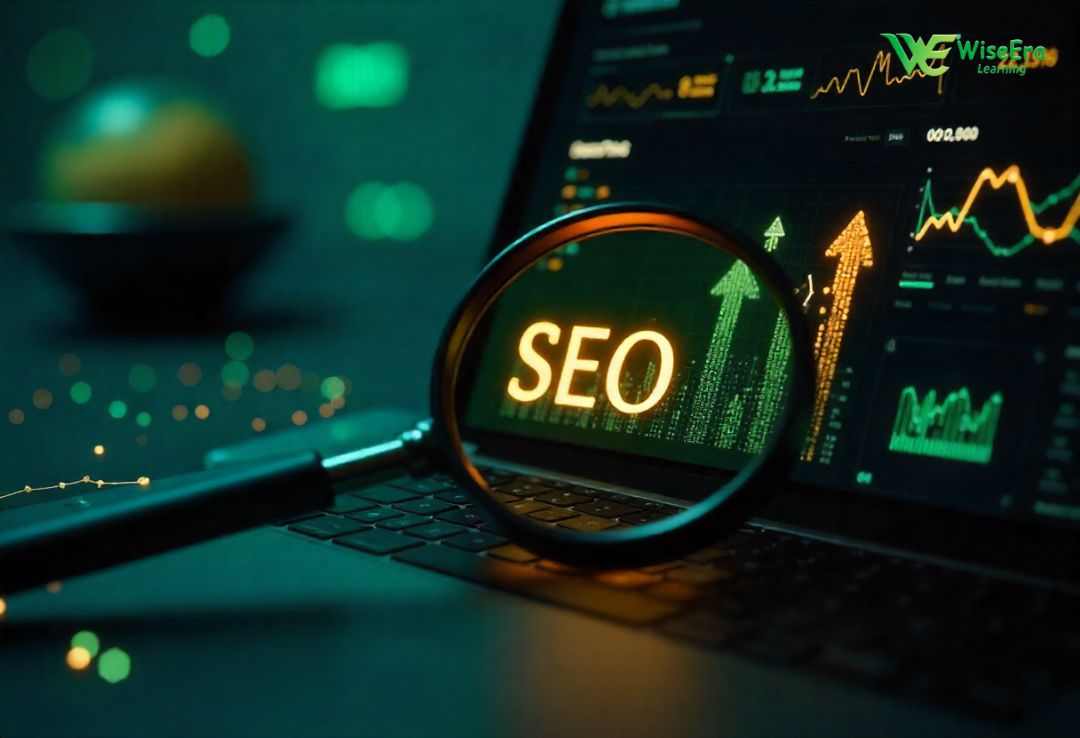
The internet has completely changed how businesses advertise and get in touch with clients in today’s highly digitalized marketplace. This is known as digital marketing. Regardless of whether you are a student, business person, freelancer or employee seeking other employment, knowing about digital marketing opens up a world of possibilities. It is a contemporary way of utilizing certain links such as websites, search engines social media and emails to communicate with the identified audience.
There was an era when people depended on TV, newspapers or radio for advertisement. Today, businesses across the globe invest huge resources targeting the approximately three billion online users worldwide in order to increase their digital footprint. Today, every organization whether big or small is putting money in online marketing which will help them follow customers and make more sales through offering visibility.
This blog post covers all areas of digital marketing such as types, tools, strategies and advantages. Whether you consider yourself a novice or experienced individual wanting to enrich their knowledge base, be sure to follow along with this comprehensive blog – all about Digital Marketing 2025!
Table of Contents
- What is Digital Marketing?
- Why is Digital Marketing Important Today?
- Traditional Marketing vs Digital Marketing
- How Digital Marketing Works
- Types of Digital Marketing
- Search Engine Optimization (SEO)
- Content Marketing
- Social Media Marketing (SMM)
- Pay-Per-Click Advertising (PPC)
- Email Marketing
- Affiliate Marketing
- Influencer Marketing
- Mobile Marketing
- Video Marketing
- Benefits of Digital Marketing
- Digital Marketing for Small Businesses
- Digital Marketing Career Opportunities
- Essential Tools in Digital Marketing
- Future of Digital Marketing
- Common Mistakes in Digital Marketing
- Conclusion
- FAQs
1. What is Digital Marketing?
Digital marketing is all about the act of promoting goods, services as well as brands through digital media or online platforms. Some examples of these are the search engines, websites, social networking sites, emails and short messages sent over the mobile phone among other outlets. It aims at reaching out to clients on the cyber space since that is where many people spend most of their time.
In comparison with traditional techniques, digital marketing provides for immediateness in terms of feedback, monitoring of data on consumer behavior and targeted advertising. This is because it enables companies to do more than just communicate with their customers. With digital marketing, one can measure his or her progress in increasing brand awareness, getting leads or making sales thereby providing certain objectives for such kind of marketing.
Some core components of digital marketing include:
- SEO (Search Engine Optimization)
- PPC (Pay-per-click Advertising)
- Social Media Marketing (SMM)
- Email Marketing
- Affiliate and Influencer Marketing
The sector changes continuously, alongside technological advancements. The significance of having a powerful digital profile becomes more obvious as more individuals depend on smartphones and social media platforms.
2. Why is Digital Marketing Important Today?
Today’s world highly values digital marketing. The truth is that nowadays people search, shop and interact more over the internet than in real life. If you are not on the internet, then there are many sales opportunities that you will lose with customers who are just a click away.
Below are a few explanations proving why it is so crucial to implement digital marketing strategies in today’s world:
- Global Reach: Connection to clients worldwide regardless of one’s location
- Targeted Audience: Getting to the specific customers that want what you have to offer
- Cost-Effective: It costs less than traditional ways of advertising and brings higher profits
- Measurable Results: Monitor user behavior, campaign performance, and customer journeys.
- Real-Time Engagement: Immediate interaction through comments, messages or emails with your followers.
- Competitive Advantage: Being better placed in comparison to those competitors not making good use of digital tools
Whether you run an online store, blog, coaching platform, or service-based business, digital marketing strategies help you scale faster.
3. Traditional Marketing vs Digital Marketing
Understanding the difference between traditional marketing and digital marketing is key to choosing the right strategy for your business.
| Feature | Traditional Marketing | Digital Marketing |
|---|---|---|
| Channels | TV, Radio, Newspapers, Billboards | Social Media, SEO, Email, Websites |
| Cost | Expensive | More affordable and scalable |
| Targeting | Broad audience | Highly specific targeting (location, age) |
| Interactivity | One-way communication | Two-way interaction (comments, shares) |
| Analytics | Difficult to measure | Real-time tracking |
| Customization | Limited | Highly customizable campaigns |
Traditional marketing still has value, especially in rural or older markets. But for a scalable and data-driven approach, digital marketing leads the way in today’s world.
4. How Digital Marketing Works
The basic flow of digital marketing involves the use of digital platforms for sending particular contents and messages to some target customers. It goes as follows:
- Audience Research – Identifying your ideal customers through demographics, behavior, and interests.
- Channel Selection – Choosing platforms such as Google Ads, Instagram, or email marketing tools.
- Content Creation – Developing valuable content (blogs, ads, videos) that align with audience needs.
- Execution – Launching marketing campaigns across selected channels.
- Measurement – Using tools like Google Analytics or social media insights to track performance.
- Optimization – Refining strategies based on data for better results.
By aligning content with customer intent and behavior, digital marketing strategies can convert cold traffic into loyal customers.
5. Types of Digital Marketing
There are several major types of digital marketing, each serving a unique purpose:
- Search Engine Optimization (SEO) – Enhancing how easily a website is seen on search engines.
- Content Marketing – Generation of information that is important to customers so as to attract them to the product.
- Social Media Marketing (SMM) – Advertising of products using social networking sites e. g. Facebook, twitter etc.
- Email Marketing – Sending targeted emails for lead nurturing and conversion purposes.
- PPC Advertising – Paying for advertisement spaces on various platforms such as Google or YouTube.
- Affiliate Marketing – Giving incentives to partners who help in selling the company’s products.
- Influencer Marketing – Working with individuals who have many followers on social media.
- Mobile Marketing – Creating better experience for users of SMS, apps, and mobile search engine through optimization techniques.
- Video Marketing – Making use of YouTube, reels, or explainers to tell stories about your brand.
A strong strategy often combines multiple digital marketing types for better coverage and conversions.
6. Search Engine Optimization (SEO)
Search Engine Optimization (SEO) is the practice of improving your website’s content and structure to rank higher on search engine results pages (SERPs). The better your ranking, the more organic traffic you gain.
Basic elements of SEO:
- On-page SEO: Optimizing content, titles, images, and internal links.
- Off-page SEO: Building backlinks and brand mentions from high-authority sites.
- Technical SEO: Improving site speed, mobile-friendliness, and crawlability.
- Local SEO: Optimizing for Google My Business and local keywords.
For SEO for beginners, focus on writing valuable content around keywords your audience is searching for, improving page speed, and building a strong internal linking structure.
7. Content Marketing
Content marketing is all about creating and sharing valuable, consistent content to attract and retain a clearly defined audience.
Types of content include:
- Blog posts
- Infographics
- E-books
- Webinars
- Social media posts
Content marketing is important as it educates clients, creates confidence and complements SEO. If your content is good then it can help you in making sales because it will make you be perceived as a leader in your sector thereby converting many readers to paying clients.
Effective content marketing isn’t about selling, it’s about solving problems and providing value.
8. Social Media Marketing (SMM)
Social Media Marketing (SMM) is the process of promoting products or services on platforms like Facebook, Instagram, Twitter, LinkedIn, and Pinterest.
Benefits of SMM:
- Boosts brand awareness
- Increases engagement
- Drives website traffic
- Improves customer service
- Builds community
For a successful SMM strategy for small businesses, focus on:
- Choosing the right platform (where your audience hangs out)
- Posting regularly
- Using storytelling in visuals
- Running low-budget ads to build followers
- Engaging with followers through DMs and comments
Social media acts as both a discovery and conversion platform in modern digital marketing.
9. Pay-Per-Click Advertising (PPC)
PPC (Pay-Per-Click) advertising is a paid marketing model where advertisers pay a fee each time someone clicks their ad. Google Ads is the most common PPC platform.
Key features of PPC campaigns:
- Immediate visibility
- Targeted audience selection
- Budget control
- Measurable ROI
Benefits of PPC in digital marketing:
- You only pay for actual results (clicks)
- Great for promoting time-sensitive offers
- Works well with SEO as a combined strategy
- Provides instant traffic to new websites
PPC is ideal for businesses looking for quick visibility and controlled ad spend.
10. Email Marketing
Email marketing is a powerful channel for nurturing leads, promoting content, and building customer relationships.
Types of email campaigns:
- Welcome series
- Newsletters
- Product announcements
- Cart abandonment emails
- Re-engagement emails
How to grow email subscribers:
- Offer a lead magnet (eBook, checklist)
- Use exit-intent popups
- Promote signups on social media
- Embed forms across your website
Well-optimized email campaigns achieve high ROI because they reach customers directly in their inbox.
11. Affiliate Marketing
Affiliate marketing is a performance-based digital marketing model where businesses reward individuals (affiliates) for driving traffic or sales through their referral links.
How affiliate marketing works:
- A business provides a unique affiliate link.
- The affiliate shares this link through blogs, social media, or email.
- When a user clicks and makes a purchase, the affiliate earns a commission.
Popular platforms for affiliate marketing include:
- Amazon Associates
- ShareASale
- ClickBank
- Impact
This method benefits both parties—brands expand their reach, and affiliates earn passive income. For bloggers, influencers, and content creators, affiliate marketing is an excellent way to monetize their platforms.
12. Influencer Marketing
Influencer marketing involves collaborating with individuals who have a loyal social media following to promote products or services.
Why it works:
- Influencers already have built-in trust with their followers.
- Their recommendations feel more personal than traditional ads.
Best influencer marketing platforms:
- YouTube
- TikTok
- LinkedIn (for B2B)
Types of influencers:
- Nano (1K–10K followers)
- Micro (10K–100K followers)
- Macro (100K–1M)
- Mega (1M+)
Brands must choose influencers who align with their audience and values. In 2025, influencer marketing continues to grow, especially in niches like fashion, tech, fitness, and lifestyle.
13. Mobile Marketing
Mobile marketing targets users on smartphones and tablets using channels such as SMS, push notifications, in-app ads, and mobile-optimized websites.
Why it’s important:
- Over 60% of internet traffic comes from mobile devices.
- Consumers spend more time on mobile apps than desktop browsers.
Mobile marketing trends 2025:
- Voice search optimization
- Location-based marketing (geo-fencing)
- Mobile-first design
- Progressive Web Apps (PWAs)
If your business isn’t optimized for mobile, you risk losing a large portion of your audience. Always ensure fast loading times, responsive design, and simple navigation for better engagement and conversions.
14. Video Marketing
Video marketing is the use of videos to promote, explain, or educate users about products and services. It’s one of the most engaging forms of content online.
Benefits of video marketing for business:
- Increases engagement on social media
- Boosts conversion rates on landing pages
- Improves SEO (users stay longer on pages)
- Builds trust through storytelling
Popular platforms:
- YouTube (second-largest search engine)
- Instagram Reels
- TikTok
- Facebook Watch
- LinkedIn Video
From tutorials and explainer videos to testimonials and webinars, every brand should include video marketing in its strategy.
15. Benefits of Digital Marketing
The benefits of digital marketing go beyond just cost savings. Here’s why businesses of all sizes are making the shift:
- Measurable Results: Track performance in real-time with tools like Google Analytics.
- Targeted Reach: Reach the right audience based on demographics, interests, or behavior.
- Cost-Effective: Suitable for all budgets.
- Increased ROI: Better conversions than traditional channels.
- Brand Awareness: Create a strong online presence across platforms.
- Two-Way Communication: Direct interaction builds trust.
- Scalable: Easily expand to new markets or products.
This is why digital marketing is better than traditional marketing, especially for small businesses and startups.
16. Digital Marketing for Small Businesses
Small businesses can compete against large corporations in the digital market. Despite their restricted budgets, small enterprises can still give tough competition if they are intelligent and tactical.
Tips for small businesses:
- Start with local SEO to attract nearby customers.
- Use Google My Business to boost visibility.
- Run social media campaigns to build community.
- Use email marketing to retain loyal customers.
- Create valuable blog content to rank on Google.
Small businesses can experience continuous expansion by employing individualized digital marketing approaches if they receive the necessary support and use appropriate tools.
17. Digital Marketing Career Opportunities
In the current world, digital marketing provides many interesting and diverse career options. The need for competent marketers is increasing as more companies adopt digital marketing.
Digital marketing jobs for beginners:
- SEO Executive
- Content Writer
- Social Media Manager
- Email Marketing Specialist
- PPC Analyst
- Influencer Marketing Coordinator
Advanced roles include:
- Digital Marketing Manager
- Performance Marketing Head
- Growth Hacker
Free certifications are available on Coursera, HubSpot Academy, and Google Digital Garage platforms. The sector is perfect for freelancers, students, and job seekers who seek flexible jobs with good prospects.
18. Essential Tools in Digital Marketing
The right digital marketing tools streamline your workflow and improve results.
Best digital marketing tools for beginners:
- SEO: Google Search Console, Ubersuggest, Ahrefs
- Email: Mailchimp, ConvertKit
- Social Media: Buffer, Hootsuite, Canva
- Analytics: Google Analytics, Hotjar
- Content: Grammarly, Hemingway, ChatGPT
- PPC: Google Ads Editor
These tools help you analyze performance, automate tasks, and optimize your campaigns for better ROI.
19. Future of Digital Marketing
Technology, data, and personalization will determine the future prospects of digital marketing. Here’s what to expect:
- AI-Powered Marketing: Chatbots, smart segmentation, AI-generated content
- Voice Search Optimization
- Augmented Reality (AR) Ads
- Zero-Click Searches: More focus on featured snippets
- Privacy-First Marketing: Cookie-less tracking methods
Brands will now concentrate on creating value for their customers through content as well as giving them an immersive experience. Staying updated is essential to remain competitive in this rapidly evolving space.
20. Common Mistakes in Digital Marketing
Even experienced marketers can fall into traps. Here are some digital marketing mistakes to avoid:
- Ignoring SEO basics
- Neglecting to identify a specific target audience
- Excessive self-promotion on social media
- Utilizing questionable data sources
- Inadequate mobile optimization
- Skipping testing and adjusting campaigns
- Ignoring analytics tracking entirely
Avoid these pitfalls in your campaigns by planning ahead, getting to know your audience, and looking at the data regularly. It’s really important to keep learning and stay flexible.
21. Conclusion
It is important for every person to know that digital marketing goes beyond internet marketing as it involves various tools, platforms and strategies which are meant to create a linkage with the customers. With knowledge about digital marketing whether through being an entrepreneur, student, freelancer or even a marketer one can enhance visibility, draw traffic and grow better.
Currently, digital marketing is vitally important due to its worldwide coverage, measurability, and flexibility. From SEO and Content Marketing to Social Media and Email Campaigns are all integral part of a good digital profile.
Have clear strategies, keep learning and trying out new things until you find the solution. The fact is that if you adopt some of the techniques outlined in this article, you will outperform 90% of companies that continue with traditional methods.
FAQs
1. What is digital marketing in simple words?
Digital marketing refers to the use of the internet as well as the digital tools for purposes of promoting products, services or ideas to a given class of consumers.
2. Is digital marketing a good career option?
Yes, it’s a high-demand, well-paying, and future-proof career with roles in SEO, content, social media, email, and paid ads.
3. Which are some of the skills required for digital marketing?
Some of the skills required include SEO, content writing, analytics, creativity, communication, as well as some knowledge in using WordPress and other tools.
4. Can I learn digital marketing without any academic qualification?
Definitely yes! There are numerous free and payable online courses that can be obtained from Google, HubSpot, Coursera among others on these topics.
05. How long would it take me to learn about digital marketing?
Basics can be learned in 3–6 months. Mastery takes 1–2 years of consistent practice and real-world experience.
6. How does SEO help in digital marketing?
When it is done properly, SEO will improve your site visibility on Google hence increasing traffic of organic visitors who could be converted into clients.
7. Is digital marketing suitable for small businesses?
Yes! It’s cost-effective, measurable, and helps small businesses grow locally and globally with the right strategy.





